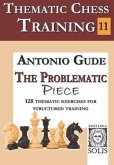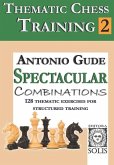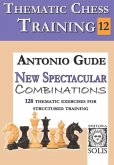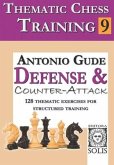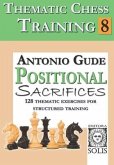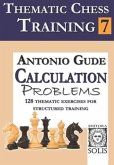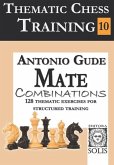THEMATIC CHESS TRAINING BOOK 1 - OPENING PROBLEMS Chess openings always sow an element of intrigue and suspense. What will our opponent play? How can we take advantage of our position? What surprises and unpredictable moves await us at the end of each variant? In Chess School (1 and 2) attention is paid to openings, within the limited space available in generic manuals. In Chess School 2 there are two chapters: the first (The game in the opening) and the ninth (The repertoire of openings), the latter giving us a glimpse of the theoretical panorama, with some new ideas and, above all, the design of a repertoire, according to each player's individual style. Once the player has opted for a tailor-made repertoire, their task will consist of studying the openings they have decided to adopt, delving into them, and taking note of the novelties that are produced at each step. This certainly requires clarification. A theoretical novelty is that new move that high competition (or, as we said before, masterly practice) endorses and ratifies. A novelty is just a new move, an experiment whose merits and flaws have yet to be confirmed by competitive practice. Only one formula is known for progressing in chess: play as many games as possible, along with theoretical study and analysis of the games themselves. The ideal complement to this formula is, as many great masters recommend, for the player to develop and perfect their tactical and strategic skills by solving numerous exercises, specially selected for their usefulness. Like the ones we offer here.
Hinweis: Dieser Artikel kann nur an eine deutsche Lieferadresse ausgeliefert werden.
Hinweis: Dieser Artikel kann nur an eine deutsche Lieferadresse ausgeliefert werden.


